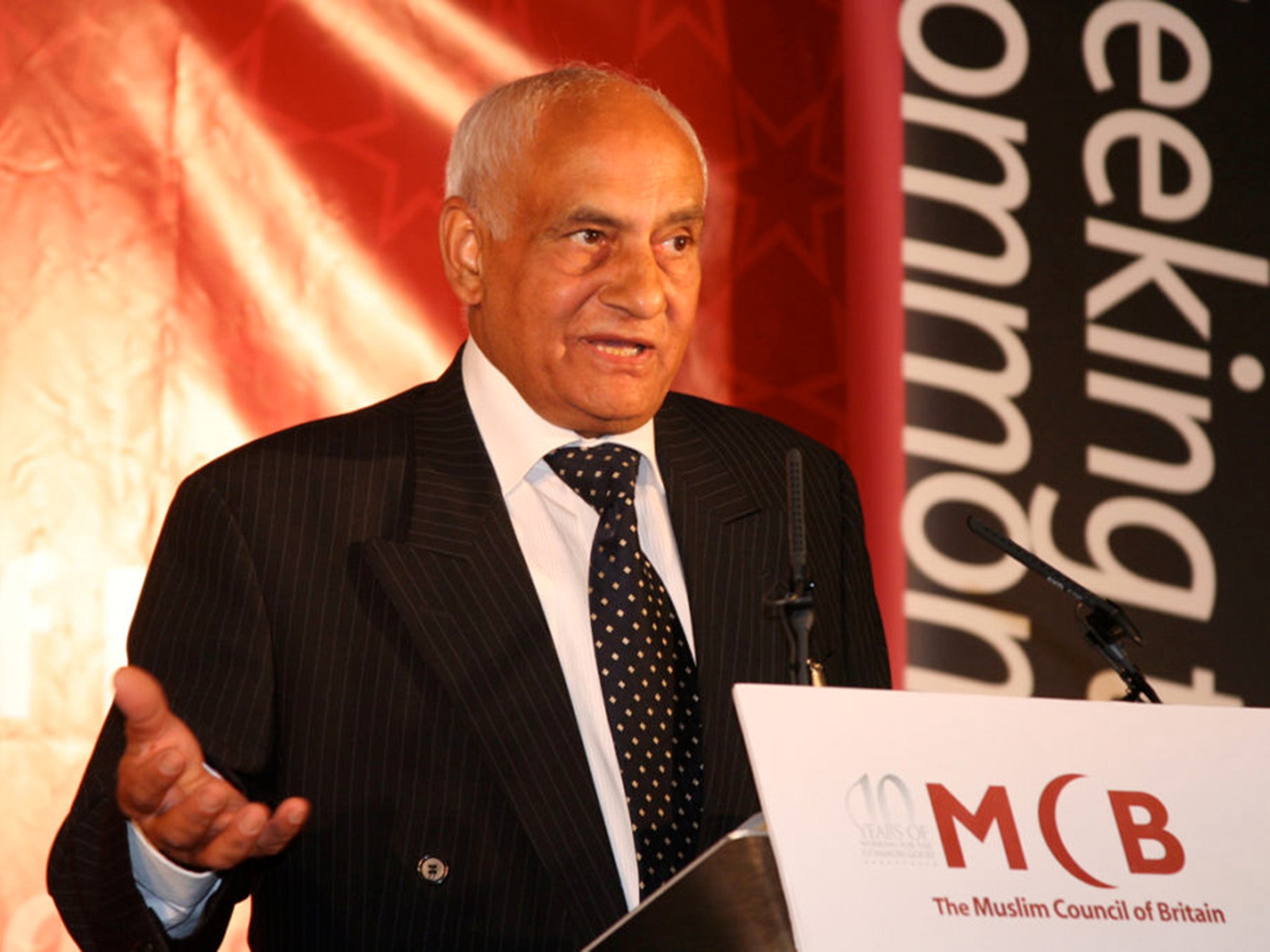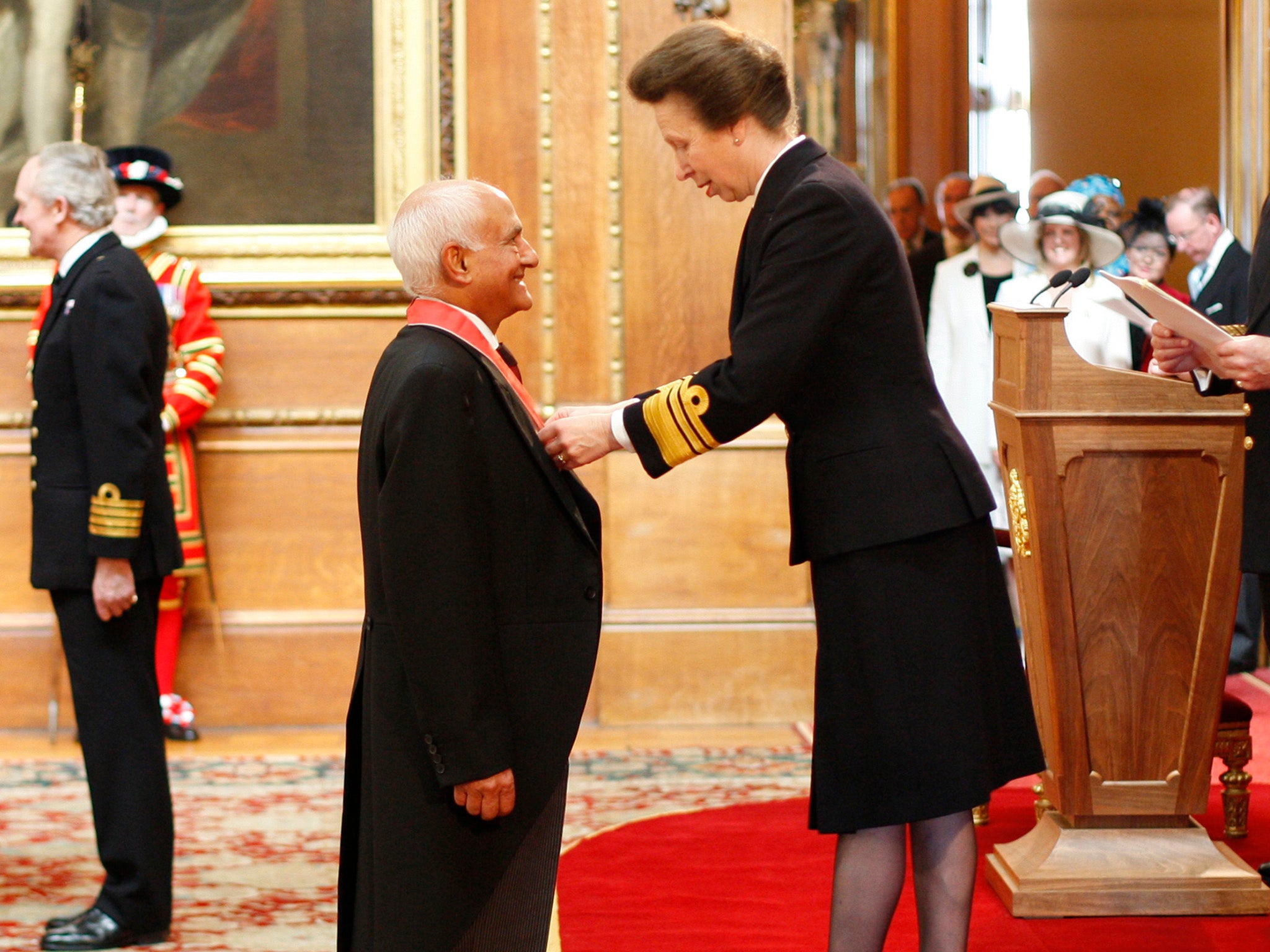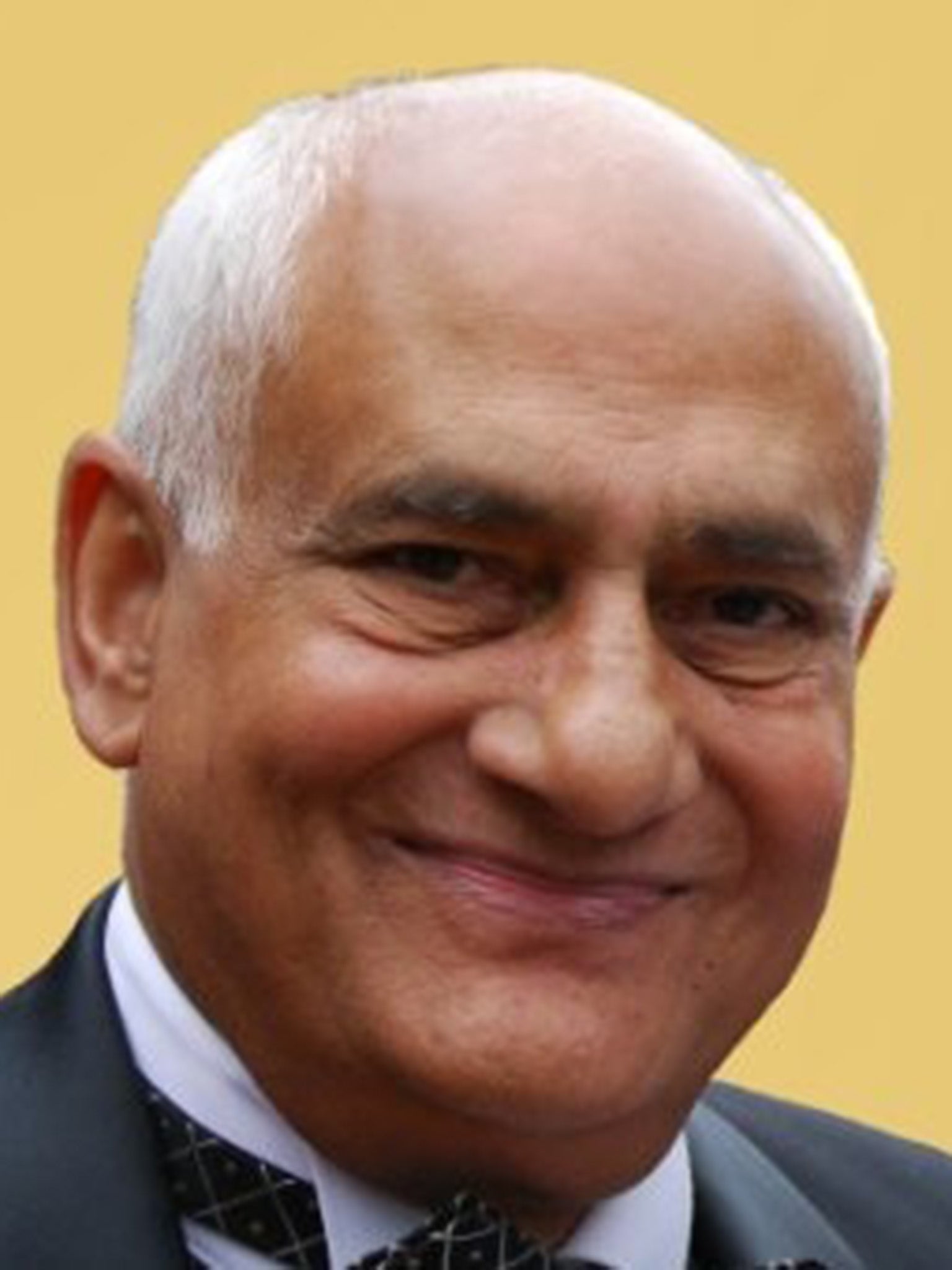Khurshid Drabu: Britain’s first Muslim judge and a pioneer of social cohesion and interfaith dialogue
He arrived from India in 1971 with little more than his intellect and a willingness to succeed. He went on to become one of the establishment’s wisest heads

Your support helps us to tell the story
From reproductive rights to climate change to Big Tech, The Independent is on the ground when the story is developing. Whether it's investigating the financials of Elon Musk's pro-Trump PAC or producing our latest documentary, 'The A Word', which shines a light on the American women fighting for reproductive rights, we know how important it is to parse out the facts from the messaging.
At such a critical moment in US history, we need reporters on the ground. Your donation allows us to keep sending journalists to speak to both sides of the story.
The Independent is trusted by Americans across the entire political spectrum. And unlike many other quality news outlets, we choose not to lock Americans out of our reporting and analysis with paywalls. We believe quality journalism should be available to everyone, paid for by those who can afford it.
Your support makes all the difference.It is no exaggeration to say that over the past 30 years Khurshid Drabu, who has died aged 72, was one of the most influential and respected of all British Muslims.
Britain’s first Muslim judge, Drabu has died aged 72 after an extraordinary career of public service and a life devoted to working for community cohesion and dialogue between faiths.
Drabu was born in Srinagar, Kashmir – he never forgot his Kashmiri roots, and all his life remained active in the fight for human rights there. He came to the Britain in 1971 as a poor but gifted student, having already shown his intellect and his determination in his early studies in the humanities and the law in India.
He was called to the bar of England and Wales in 1977, and in the Eighties became well-known for his expertise in immigration law, winning several landmark cases.
In 1987 he became the deputy director of the UK Immigrants Advisory Service – a government-aided voluntary body with remit to advise and represent immigrants with rights of appeal under the Immigration Acts. In this, as throughout his life, his driving motivations were justice, equality and fairness.
In 1990 he joined the Commission for Racial Equality as its first deputy legal director. Among his responsibilities was carrying out a review of the 1976 Race Relations Act, and it was under his watch that the CRE brought attention to the glaring inadequacy of protection for followers of faiths from discrimination and abuse.

Drabu spent 13 years as a Justice of the Peace, and 12 years as president of the Mental Health Review Tribunal; he was also a visiting professor of law at the University of Middlesex. His extraordinarily wide range of experience soon made him one of the most valued wise heads in British society.
In 1996 he was appointed to the immigration judiciary, and became vice president of the immigration appeal tribunal in 2000, serving as senior immigration judge until 2007 when he took early retirement. He continued, however, to sit as a judge at the Upper Tribunal in the Asylum and Immigration Chamber.
In his wide range of work, one of Drabu’s central concerns was the state of the Muslim community in Britain. He was one of the founders of the Muslim Council of Britain, the largest national Muslim body working for the common good.
Drabu served it for 15 years as its adviser on legal and constitutional affairs as well as its election commissioner. Concerned about worsening Islamophobia following the terrorist attacks of 9/11, he was part of the group of who in 2007 created the Mosques and Imams National Advisory Board (Minab) which aimed to promote good governance in mosques and higher standards of imams.
A national non-sectarian advisory body with no role in matters of theology, Minab was committed to promoting community cohesion and interfaith dialogue, and also became an important influence in bringing the Sunni and Shia communities together.
A driving force in writing its constitution, Drabu was instrumental in pushing for women and young people to be involved in the management of Minab, which became one of the passions of his life; he continued to serve as its special adviser until his death.
In his almost unbelievably packed life, from 2002 he was also Muslim adviser to the Ministry of Defence, where he was extraordinarily effective in promoting careers in the armed forces to Muslims – through his influence the number of Muslims serving rose from a mere handful to more than 800 in active service.

This underlines one of his biggest concern community cohesion and interfaith dialogue: in this Drabu became one of the most influential and senior Muslim activists. It was for his work in “bringing communities together” that Drabu was awarded the CBE in 2010.
To live such a committed life, with so many obligations, giving so much to so many causes, involved a punishing schedule. Till his seventies he would regularly work long into the night and yet still be up at 6am, even after a quadruple bypass.
For him the issues of our time for the Muslim community – and for the wider society – were urgent ones. In 2005 he spoke about his fears for a young generation of British Muslims who found themselves alienated, caught between Western modernity and their own religious and social traditions; his concern was that they were “not being listened to“, and that “their anger was not understood”.
He spoke eloquently too about the status of women, suggesting for example that the niqab – or face veil – has no scriptural basis and had become a barrier: a mark of separation from the larger society to which Muslims belonged.
In all this he wanted Muslim youth “to see the best of Islam without being alienated”. The same could be said indeed of all the non-Muslims who came into contact with him: for his was a life devoted to the meeting of minds.
He once said: “My inspiration in putting in the long hours for the community work is the future of my children and grandchildren and the nation as a whole. I just hope that one day we will live in a society where there is a better understanding of each other. That is all I seek really.”
A keen gardener, Drabu’s other great passion was cricket. In his youth, he was a well-known cricketer for Jammu and Kashmir: indeed he once hit Bishan Bedi for four fours: a feat in which he took almost as much pleasure as in his formidable public achievements.
Always with a twinkle in his eye, Drabu had a mischievous deadpan sense of humour. Infectiously determined, invariably modest in his remarkable accomplishments, he will be greatly missed but warmly remembered. If ever there was a citizen of the world, it was him.
Khurshid Drabu, judge and community activist, born March 1946, died 20 April 2018
Join our commenting forum
Join thought-provoking conversations, follow other Independent readers and see their replies
0Comments